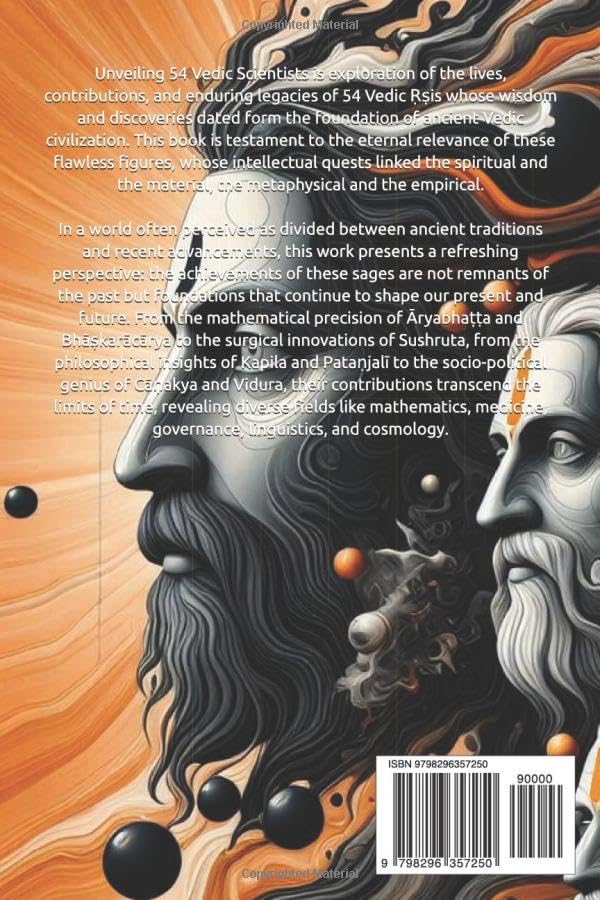Life is a journey filled with ups and downs, and at various points along the way, we all encounter moments of demotivation and despondency. These are the times when we may feel stuck, uninspired, or disheartened, and they can pose significant challenges on our path to success and fulfillment. Here, we will explore the concept of demotivation from both a modern perspective and through the timeless wisdom of the Bhagavad Gita, a sacred text in Hinduism. We will shed light on the origins of demotivation, its consequences, and, most importantly, the transformative means to reignite one’s inner fire and regain motivation and purpose in life.
Demotivation can manifest in various forms, such as a lack of enthusiasm for work, a sense of hopelessness, or a feeling of aimlessness. It can be triggered by a range of factors, including personal setbacks, external challenges, or the monotony of daily life. The consequences of demotivation can be detrimental to our well-being, leading to reduced productivity, strained relationships, and a general sense of unhappiness.
In this article, we will draw insights from the Bhagavad Gita, an ancient Vedic scripture that imparts wisdom on how to navigate the challenges of life. The Gita provides valuable teachings on how to overcome demotivation, find one’s purpose, and unleash the inner potential for success and fulfillment.
We will explore the timeless wisdom contained within the Bhagavad Gita and relate it to our modern struggles with demotivation. By understanding the origins of demotivation, recognizing its consequences, and learning from the teachings of the Gita, readers will gain valuable insights and practical guidance to reignite their inner fire and continue their journey towards success and fulfillment.
Demotivation, as defined, is a state of mind where an individual experiences a significant decline in their motivation, enthusiasm, and engagement in their pursuits. In this state, a person may feel disinterested, uninspired, and lacking a sense of purpose in what they are doing. This can manifest in various aspects of life, including work, personal goals, relationships, and other endeavors.
- Key characteristics of demotivation include:
Lack of Enthusiasm: Demotivated individuals often struggle to find joy or excitement in their tasks. They may approach their responsibilities with a sense of apathy and indifference.
Reduced Productivity: Demotivation can lead to decreased productivity and effectiveness in one’s work or activities. When motivation is low, people tend to procrastinate or perform tasks half-heartedly, leading to subpar results.
Sense of Aimlessness: Those experiencing demotivation may feel directionless, not knowing why they are doing what they’re doing. This can lead to a feeling of being lost or without a clear purpose.
Diminished Inner Drive: Demotivation can erode a person’s internal drive and self-motivation. This can result in a lack of ambition and a feeling of being stuck in a rut.
The causes of demotivation can be diverse and may include personal setbacks, stress, burnout, unfulfilling work, lack of recognition, or simply the monotony of daily life. Recognizing and addressing the underlying causes of demotivation is essential for overcoming this state and rediscovering a sense of purpose and motivation.
It’s important to note that demotivation is a common experience that can affect anyone at various points in life. However, there are strategies and techniques, both from a psychological and philosophical standpoint, that can help individuals regain their motivation and enthusiasm for their pursuits. The Bhagavad Gita, for instance, offers timeless wisdom and guidance on how to navigate such challenges and reignite one’s inner fire.
Demotivation can have various origins, and it is essential to understand the factors that contribute to this state of mind. In a modern context, several factors can lead to demotivation, including:
Unmet Expectations: When individuals have high expectations and these expectations are not met, it can lead to disappointment and demotivation. This can occur in personal relationships, career aspirations, or any area where individuals have set specific goals.
Burnout: Continuous stress, excessive workload, and a lack of work-life balance can result in burnout, which often leads to demotivation. Burnout can leave individuals feeling emotionally and physically drained, making it challenging to find motivation to perform their tasks.
Personal Challenges: Personal difficulties, such as health issues, financial problems, or family-related concerns, can weigh heavily on a person’s motivation. These challenges can be emotionally taxing and lead to a loss of enthusiasm for other aspects of life.
Lack of Clear Goals: When individuals lack a clear sense of purpose or direction in their lives, they may struggle with demotivation. Without clear goals or a sense of where they are headed, it can be challenging to find motivation to take action.
In the Bhagavad Gita, verses 1.29-30 and 18.48 provide valuable insights into the origins of demotivation from a philosophical and spiritual perspective. The text suggests that demotivation can arise when individuals lose sight of their “dharma” (duty) or their connection to a higher purpose. Here’s an explanation of these verses:
Verse 1.29: In this verse, Arjuna, the central character in the Bhagavad Gita, is overcome by confusion and despair on the battlefield, unsure about his duty. This state of inner conflict and doubt reflects a loss of connection to one’s dharma, which can be a source of demotivation. When individuals are uncertain about their role or purpose in a particular situation or in life in general, they may experience a lack of motivation.
Verse 1.30: This verse continues to describe Arjuna’s emotional turmoil and his reluctance to fight in the battle. Arjuna’s wavering commitment to his duty symbolizes how a disconnect from one’s dharma can lead to demotivation and a sense of being stuck or disheartened.
saha-jaṁ karma kaunteya
sa-doṣam api na tyajet
sarvārambhā hi doṣeṇa
dhūmenāgnir ivāvṛtāḥ
Every endeavor is covered by some fault, just as fire is covered by smoke. Therefore, one should not give up the work born of his nature, O son of Kuntī, even if such work is full of fault.
In this verse 18.48, the Bhagavad Gita emphasizes the importance of performing one’s duty in alignment with their skills, nature, and calling. When individuals understand and embrace their dharma, it becomes a source of motivation and inner fire. A sense of purpose and a connection to a higher calling can help individuals overcome demotivation.
These verses in the Bhagavad Gita emphasize the significance of understanding one’s duty and aligning it with their higher purpose to combat demotivation and regain motivation and enthusiasm in life. It suggests that a clear sense of duty and purpose can serve as a powerful antidote to demotivation.
Revered scriptures, including the Bhagavad Gita, often provide profound insights into the human condition and how to address challenges such as demotivation. In the Bhagavad Gita, as you’ve mentioned, demotivation is depicted through the character of Arjuna, and the text offers valuable wisdom on this subject.
vepathuś ca śarīre me
roma-harṣaś ca jāyate
gāṇḍīvaṁ sraṁsate hastāt
tvak caiva paridahyate
na ca śaknomy avasthātuṁ
bhramatīva ca me manaḥ
nimittāni ca paśyāmi
viparītāni keśava
My whole body is trembling, my hair is standing on end, my bow Gāṇḍīva is slipping from my hand, and my skin is burning. I am now unable to stand here any longer. I am forgetting myself, and my mind is reeling. I see only causes of misfortune, O Kṛṣṇa, killer of the Keśī demon.
Here, we witness the evident consequences of doubt, demotivation, and despair. Arjuna’s impatience led to his inability to remain on the battlefield, and he became lost in his own thoughts due to the weakness of his mind. This excessive attachment to material possessions and outcomes placed him in a bewildering state of existence, characterized by fear and a loss of mental equilibrium. As the Bhagavad Gita and Srimad Bhagavata Mahapuranam 11.2.37 suggests, such fear and a lack of mental composure are common in individuals deeply entangled in material conditions.
Arjuna could only envision a future filled with painful setbacks on the battlefield, and he believed that even victory over his foes would not bring him happiness. The phrase “nimittāni viparītāni” holds significance here, as it indicates that when a person consistently experiences disappointment and frustration in their expectations, they may question their purpose and wonder, “Why am I here?”
In this moment, it is apparent that Arjuna, like many, is primarily concerned with his own welfare and interests, losing sight of the Supreme Self. He fails to recognize that his true self-interest aligns with Viṣṇu or Kṛṣṇa. This ignorance of one’s genuine self-interest leads to the suffering of material pains. Arjuna erroneously believed that victory in the battle would only bring him sorrow and lamentation, highlighting his temporary loss of perspective and understanding of his true purpose and well-being.
In these verses, Arjuna, a warrior prince, is found standing on the battlefield, deeply troubled by doubt and despair. He is reluctant to engage in the battle, and his inner turmoil symbolizes the profound impact of demotivation. The Bhagavad Gita uses Arjuna’s struggle to illustrate how even a person of great strength and capability can become demotivated when faced with the weight of doubt and confusion. This conveys the message that demotivation can affect anyone, regardless of their external abilities.
The above mentioned verse 18.48 underscores the importance of performing one’s duties (dharma) with devotion and commitment. It suggests that when individuals understand and embrace their responsibilities and duties in life, they can overcome demotivation. When actions are carried out with a sense of purpose, devotion, and in alignment with one’s true calling, demotivation is less likely to take hold. This verse encourages individuals to recognize their unique roles and responsibilities in the grand scheme of things, promoting a sense of motivation and fulfillment.
The Bhagavad Gita’s teachings encourage individuals to seek their dharma and follow it with dedication. By understanding their duty and aligning it with a higher purpose, individuals can regain their motivation and inner strength, even in the face of challenging circumstances.
These teachings extend beyond the Bhagavad Gita and can be found in various spiritual and philosophical traditions. Revered scriptures often emphasize the importance of purpose, devotion, and fulfilling one’s duties as a means to counter demotivation and find fulfillment in life. These timeless insights serve as valuable guidance for those seeking to overcome moments of demotivation and reignite their inner fire.
Consequences of Demotivation:
Demotivation is a state of mind that can indeed have far-reaching consequences, affecting various aspects of an individual’s life. Here’s we discuss an elaboration on the significant implications of demotivation:
Hindered Personal and Professional Growth: Demotivation can act as a significant barrier to personal and professional development. When individuals lack motivation, they are less likely to put in the effort required to learn new skills, set and achieve goals, and strive for self-improvement. As a result, their growth potential remains largely untapped.
Missed Opportunities: A lack of motivation often leads to a reluctance to explore new opportunities or take risks. Individuals may become complacent and avoid stepping out of their comfort zones, missing out on chances for personal or career advancement.
Strained Relationships: Demotivation can affect not only an individual’s relationship with themselves but also their interactions with others. A demotivated person may become withdrawn, irritable, or disengaged in their relationships, which can lead to misunderstandings, conflicts, and a deterioration in the quality of their connections with friends, family, and colleagues.
Sense of Stagnation: One of the most pronounced consequences of demotivation is the feeling of stagnation. Individuals in this state often experience a lack of progress and growth, leading to frustration and a sense that their life is at a standstill.
Feelings of Hopelessness: Over time, persistent demotivation can give rise to feelings of hopelessness. When individuals repeatedly fail to find motivation or meaning in their pursuits, they may begin to question whether their efforts are worthwhile, which can lead to a profound sense of despair.
Loss of Meaning in Life: Demotivation can ultimately contribute to a loss of meaning and purpose in life. When individuals are consistently disengaged and uninspired, they may struggle to find a sense of significance in what they do, which can have a profound impact on their overall well-being and satisfaction.
To address demotivation and mitigate its consequences, it’s essential for individuals to identify the root causes of their demotivation, seek support, and explore strategies to reignite their motivation and enthusiasm. This may involve setting clear goals, finding a sense of purpose, seeking inspiration from various sources, or making necessary changes in their personal and professional lives. Recognizing the significance of maintaining motivation is key to unlocking one’s potential, nurturing relationships, and finding fulfillment in life.
How to Overcome Demotivation:
In the Bhagavad Gita, Lord Krishna imparts profound wisdom on overcoming demotivation and finding inner strength and motivation. Verses 11.32-33 contain significant guidance on this matter. These verses encourage individuals to surrender to a higher power and seek inspiration from a deeper source. Let’s delve into the explanation of these verses:
śrī-bhagavān uvāca
kālo ’smi loka-kṣaya-kṛt pravṛddho
lokān samāhartum iha pravṛttaḥ
ṛte ’pi tvāṁ na bhaviṣyanti sarve
ye ’vasthitāḥ praty-anīkeṣu yodhāḥ
The Supreme Personality of Godhead said: Time I am, the great destroyer of the worlds, and I have come here to destroy all people. With the exception of you [the Pāṇḍavas], all the soldiers here on both sides will be slain.
In this verse, Lord Krishna emphasizes his dual role as time, which is both destructive and preservative. Time is a force that brings change, and it can lead to challenges, setbacks, and even moments of demotivation in life. However, it is also time that provides opportunities for growth, learning, and transformation. By recognizing the inevitability of time and its influence on our lives, individuals can gain a broader perspective on their challenges and demotivation. Understanding that both destructive and preservative forces are part of a divine plan can provide solace and inspire individuals to persevere.
tasmāt tvam uttiṣṭha yaśo labhasva
jitvā śatrūn bhuṅkṣva rājyaṁ samṛddham
mayaivaite nihatāḥ pūrvam eva
nimitta-mātraṁ bhava savya-sācin
Therefore, get up. Prepare to fight and win glory. Conquer your enemies and enjoy a flourishing kingdom. They are already put to death by My arrangement, and you, O Savyasācī, can be but an instrument in the fight.
In this verse, Lord Krishna further reveals his universal presence and influence. He mentions qualities and attributes that have a significant impact on human motivation and life in general. Among these attributes are fame, fortune, speech, memory, intelligence, faithfulness, and patience. These qualities represent sources of inspiration and motivation in life. By recognizing that these attributes are manifestations of the divine, individuals can draw strength from the understanding that they are connected to a higher purpose.
The guidance provided in these verses encourages individuals to look beyond their immediate circumstances and challenges. By acknowledging the divine presence within and the universal forces at play, individuals can find inspiration and motivation to overcome demotivation. This recognition helps individuals connect to a higher purpose and source of strength, enabling them to rekindle their inner fire and move forward with renewed enthusiasm.
In essence, the Bhagavad Gita teaches that surrendering to a higher power and drawing inspiration from the divine can be a powerful means to overcome demotivation and find the inner strength needed to navigate life’s challenges and setbacks. This philosophical approach encourages a deeper understanding of the interconnectedness of all things and the role of divine forces in shaping our lives.
What Do We Achieve Overcoming Demotivation?
Overcoming demotivation, as outlined in verses 11.33 and 18.78 of the Bhagavad Gita, leads to a profound transformation of the self. These verses offer insights into how reconnecting with one’s inner fire and higher purpose can bring about a renewed sense of inspiration and clarity of purpose. Here’s an explanation of how this process unfolds:
In the verse 11.33, Lord Krishna highlights attributes and qualities that are integral to human motivation and life fulfillment. By recognizing these qualities as divine manifestations and understanding their connection to a higher power, individuals can draw strength and inspiration from this deeper source. This acknowledgment leads to a transformation of one’s perspective, enabling a shift from demotivation to a state of renewed motivation.
yatra yogeśvaraḥ kṛṣṇo
yatra pārtho dhanur-dharaḥ
tatra śrīr vijayo bhūtir
dhruvā nītir matir mama
Wherever there is Kṛṣṇa, the master of all mystics, and wherever there is Arjuna, the supreme archer, there will also certainly be opulence, victory, extraordinary power, and morality. That is my opinion.
This verse underscores the idea that when individuals align themselves with higher principles and values represented by Lord Krishna (the master of yoga) and Arjuna (the supreme archer), they experience the benefits of opulence, victory, extraordinary power, and morality. This alignment with higher ideals and purpose leads to a transformation of the self and the realization of one’s inner potential. It inspires individuals to overcome demotivation and move forward with renewed enthusiasm and clarity of purpose.
In conclusion, demotivation is a universal challenge that can hinder personal and professional growth, strain relationships, and lead to a sense of stagnation and hopelessness. The Bhagavad Gita, through its timeless wisdom, teaches us how to reconnect with our inner fire and higher purpose. By understanding the origins of demotivation and its consequences, as well as by drawing inspiration from the divine and aligning ourselves with higher principles, we can overcome demotivation.
By doing so, individuals can reignite their inner fire, find inspiration, and embark on their life’s journey with renewed vigor and a profound sense of purpose. The Bhagavad Gita’s teachings offer a valuable guide for those seeking to overcome moments of demotivation and achieve a fulfilling and purposeful life.
Hare Krishna.
Published on: Brahmacari, S. K. D. Navigating the Shadows of Society, Modern Woes: Insights and Solutions.2023.JF Inc..
Views: 63































Origin of Science
The Psychospiritual Roots of Crime
Unveiling 54 Vedic Scientists
The Existence of the Soul: Exploring Neuroscience, Quantum Physics and Vedic Philosophy
Temporal Relativity in Vedic Literature: An Interdisciplinary Analysis of Time Dilation Narratives
Acharya Kaṇāda: The Ancient Sage Who Discovered the Atom
Evidence of Vedic Sanātana Hinduism as a Global Dharma
Perception of Quantum Gravity and Field Theory in the Vedas
String Theory as Mentioned in Veda
Sanskrit’s Role in Advancing AI: A Comprehensive Study
The Vedic Model of the Mind: A Contemporary Exploration
Vedic Contributions to Geometry: Unveiling the Origins of Mathematics
Matter and Consciousness in Achintya Bhedābheda: Bridging with Quantum Physics